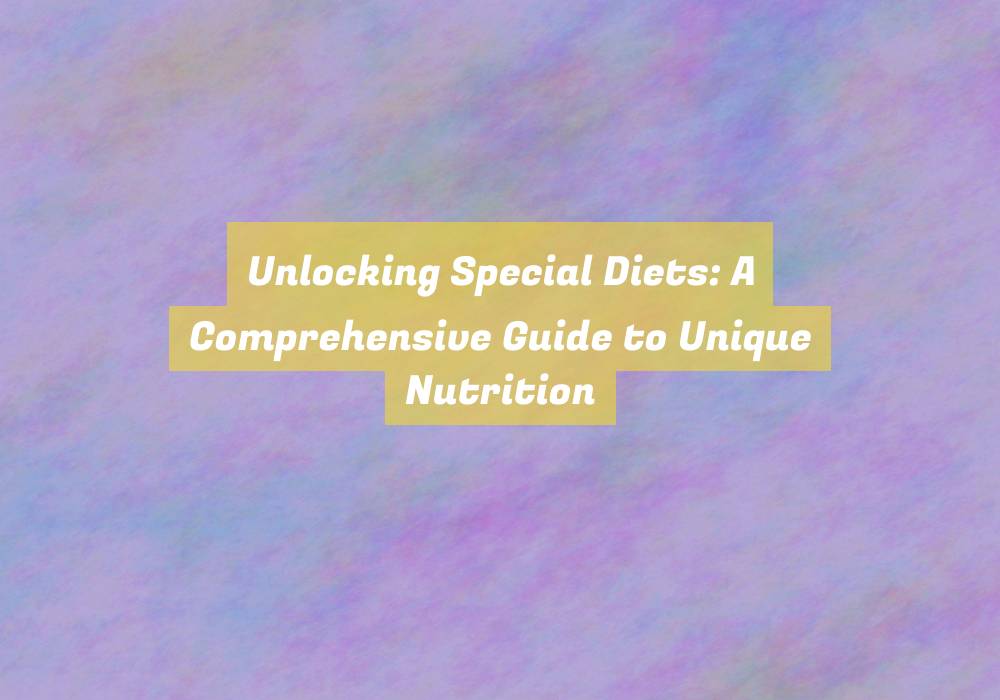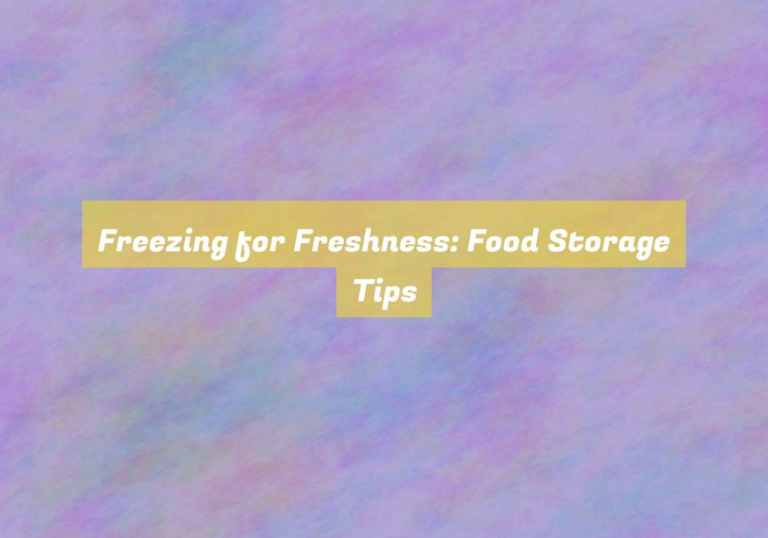Unlocking Special Diets: A Comprehensive Guide to Unique Nutrition
You know that feeling when youG??re trying to unlock a new level in a video game, and youG??ve got the key in your hand, but you just canG??t seem to find the right door?
Navigating the world of special diets can feel a lot like that. Whether youG??re exploring gluten-free, ketogenic, low FODMAP, or any other unique nutritional approach, it can be a maze of conflicting information and confusing advice.
But fear not, because in this comprehensive guide, youG??ll uncover the essential principles and practical strategies for embracing and thriving on special diets.
YouG??ll gain the tools to confidently navigate the world of unique nutrition, and discover how to optimize your health and well-being through personalized dietary choices.
Understanding Special Diet Fundamentals
Understanding the fundamentals of special diets is essential for anyone looking to make informed and effective dietary choices. When embarking on a special diet, itG??s crucial to comprehend the specific dietary requirements and restrictions associated with it. This knowledge empowers you to navigate food options confidently and maintain a balanced and nutritious diet.
For example, if youG??re considering a gluten-free diet, you need to be aware of the various sources of gluten and the potential hidden sources in processed foods. Furthermore, understanding the potential benefits and risks of a special diet is paramount. Different diets cater to unique health needs, and being well-informed about these aspects can help you make choices that align with your personal wellness goals.
Additionally, being aware of any potential drawbacks or side effects associated with a special diet ensures that you approach dietary changes with caution and awareness. In essence, comprehending the fundamentals of special diets equips you with the knowledge needed to make well-informed choices that support your health and well-being. It provides the foundation for successfully incorporating a special diet into your lifestyle and reaping its potential benefits.
Navigating Nutritional Requirements
Transitioning from understanding the fundamentals of special diets, youG??ll now focus on effectively navigating your nutritional requirements to ensure that your dietary choices align with your health goals and needs.
ItG??s crucial to tailor your diet to meet your specific nutritional needs, whether youG??re following a gluten-free, dairy-free, low FODMAP, or any other special diet.
First, consult with a registered dietitian or healthcare provider to determine your individual nutritional requirements. They can provide personalized guidance based on your health conditions, dietary restrictions, and wellness objectives.
Next, familiarize yourself with food labels and ingredients to identify any potential allergens or ingredients that may not align with your dietary needs.
Additionally, consider incorporating a variety of nutrient-dense foods to meet your essential nutrient requirements. You may also need to supplement certain nutrients that are lacking in your diet due to food restrictions.
Finally, stay informed about potential interactions between your special diet and any medications you may be taking, as this can impact your nutritional needs.
Meal Planning for Special Diets
To effectively plan meals for your special diet, consider integrating a variety of nutrient-dense ingredients and flavors while accommodating your dietary restrictions. Begin by identifying the key components of your special diet, such as gluten-free, dairy-free, or low FODMAP, and then focus on building meals around these requirements.
Incorporate a colorful array of fruits and vegetables to ensure you receive a wide range of vitamins and minerals. Experiment with alternative sources of protein, such as tofu, tempeh, or legumes, to diversify your nutrient intake. Utilize whole grains like quinoa, brown rice, or buckwheat to provide complex carbohydrates and fiber. Incorporate healthy fats from sources like avocado, nuts, and seeds to support overall well-being.
Embracing Unique Dieting Lifestyles
Embracing unique dieting lifestyles involves exploring a diverse range of nutritious and delicious food options that align with your dietary preferences and requirements.
Whether you follow a plant-based, gluten-free, ketogenic, paleo, or other specialized diet, itG??s essential to embrace the lifestyle by seeking out foods that not only meet your nutritional needs but also cater to your taste preferences.
Start by researching recipes and meal ideas that fit within your chosen diet, and donG??t be afraid to experiment with new ingredients and cooking methods.
Embracing a unique dieting lifestyle also means being open to trying different cuisines and exploring alternative sources of nutrients. For example, if youG??re following a vegan diet, you can explore plant-based protein sources such as lentils, quinoa, and tofu.
Embracing your unique dieting lifestyle also involves being proactive in seeking out restaurants and food establishments that offer menu options suitable for your dietary needs.
Conclusion
Congratulations on taking the first step towards understanding special diets!
With a solid understanding of the fundamentals, the ability to navigate nutritional requirements, and the skills to plan meals for special diets, youG??re well on your way to embracing unique dieting lifestyles.
Remember to stay open-minded, seek out support and resources, and always consult with a healthcare professional before making any major dietary changes.
YouG??ve got this!







